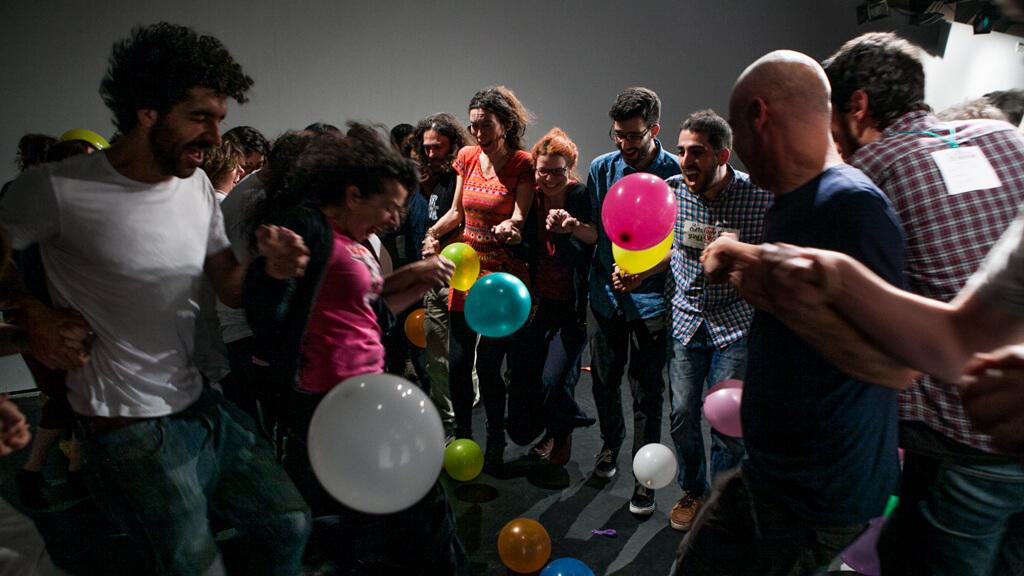Hackcamp: Careful Futures is a collective encounter creating a trans-disciplinary learning environment that may result in the production of realistic and replicable solutions for challenges related to care economy. The setting of the Hackcamp is designed to hack power relationships and establish diverse, inclusive, and democratic ways of participation. A group of artists and researchers use participatory methodologies in order to co-create different open-source prototypes.
The hackcamp is a model of an encounter with a very concrete methodological purpose: to bring together a group of people with different knowledge and skillsets to respond to challenges faced by a local community or institution. The result is always some form of a prototype that helps to, at least partially, meet the posed challenge. This model of meeting facilitates creativity and collective knowledge production, relying on visual, performative, and non-verbal tools to foster meaningful exchange between people coming from different social spaces and backgrounds.
The main principles of the Hackcamp are:
- We trust collective intelligence and knowledge exchange between peers.
- We give value to every different kind of knowledge. We avoid the distinction between experts and non-experts.
- We hear each other’s ideas and we accept diversity as the intellectual basis that we might all embrace.
- We connect practices and experiences that help us to care for the common good.
- We use visual languages, besides oral and textual languages.
This time and as part of the CreaTures project, the Hackcamp authors from the ZEMOS98 cooperative guide a smaller, portable version of the format (so-called Micro-Hackcamp) and gather up to 10 people of different profiles to develop a series of prototypes related to the topic “careful futures”.
The topic serves as a possible continuation of ZEMOS98’s participatory-action-research project “Pedagogy of care” that engages issues in the care economy, collaborative activism, and open source democracy. Its main goal is to map out and give visibility to care practices and affection management by activists and other collective social agents, exploring the ways in which activist communities deal with care in their daily relationships.
What are the unwritten rules that reproduce patriarchal relationships within activist circles? What kind of available rules could produce an effective redistribution of care among members? How can we expose the way care is being dealt with? And what tools can we develop to successfully put care in the center of all of our relationships?
